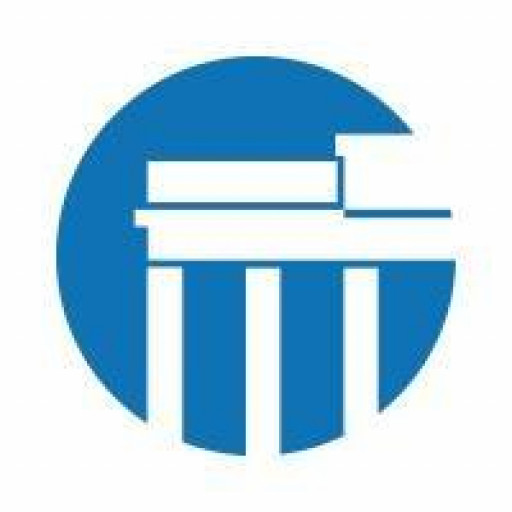Photos of university / #humboldt.uni
Program Description: The Double Degree in Quantitative Economics offered jointly by Humboldt University of Berlin, the University of Mannheim, ENSAE Paris, and ENSAI Rennes provides students with a comprehensive and rigorous education in economic theory, quantitative methods, and data analysis. This innovative program is designed for academically motivated students who aspire to develop strong analytical, mathematical, and computational skills essential for tackling complex economic and social issues in a global context. Throughout the program, students benefit from the combined expertise and teaching resources of top-tier institutions renowned for their strengths in economics, statistics, and data science. The curriculum emphasizes advanced econometrics, mathematical modeling, programming, and statistical inference, ensuring graduates are well-equipped for careers in academia, research institutions, governmental agencies, international organizations, or the private sector. The program fosters a multidisciplinary approach, integrating economic theory with cutting-edge quantitative techniques, and encourages collaborative research and practical projects. Students have the opportunity to study in different cultural and academic environments, gaining valuable international experience. The degree awarded is a double diploma recognized by all participating universities, enhancing graduates’ competitiveness in the global job market. A hallmark of this program is its strong network of alumni and partnerships with industry stakeholders, providing students with unique internship and employment opportunities. By completing this program, students develop a robust understanding of economic problems and the tools to analyze and interpret data effectively, preparing them for leadership roles in a data-driven economy. The program is suitable for those with a solid background in mathematics and economics who seek a challenging and dynamic educational experience at the intersection of theory and practice.
Educational organisation
Semester 1Module 1 French Literature and Language I
and two of the following modules:
Module 2 French
Module 3 Literature and Culture
Module 4 French and European Languages
Semester 2
Module 5 French Literature and Language II
and two of the following modules:
Module 6 European Literatures
Module 7 General and Comparative Literature
Module 8 Literature Theories and Methods
Semester 3
Module 9 French Literature and Language III
and two of the following modules:
Module 10 French and francophone Literature
Module 11 Cultural Practice
Module 12 French and European Languages
Semester 4
Master's Thesis
Seminars
labs
language courses
Study abroad unit(s)
As from the second semester, participants spend one (at the minimum) to three (at the maximum) semesters at one of the partner universities.Forms of assessment
Presentationstake home exams
academic papers
language tests
Course objectives
The programme qualifies the successful graduates for employments in media, publishing, theatre, cultural and academic management, international institutions, cultural education, science and participation in PhD programmes.Language requirements
Applicants must provide proof of their French and German skills:C1 French
C1 German
Required DSH / TestDaF
YesAcademic requirements
Bachelor's degree in French Language and Literature or equivalent philologiesThe financing of the Quantitative Economics programs at Humboldt University of Berlin, which includes partnerships with Mannheim, ENSAE, and ENSAI for the double degree option, is structured to provide students with comprehensive financial support and options for funding their studies. Tuition fees at Humboldt University are relatively modest compared to private institutions, with most programs being financed through government funding, scholarships, and student aid schemes. German public universities generally charge semester fees that cover administrative costs, student services, and public transportation, which typically amount to a few hundred euros per semester. These fees are significantly lower than in many other countries, reducing financial barriers for domestic and EU students.
International students may be required to pay higher tuition fees, depending on the program and partnership agreements. To support students financially, Humboldt University offers a variety of scholarships and grants, some of which are merit-based and others need-based. The DAAD (German Academic Exchange Service) provides numerous funding opportunities for international students, including scholarships specifically aimed at students enrolling in economics-related programs. Additionally, students can seek financial aid through the German government’s BAföG scheme, which provides income-based support, although eligibility depends on a variety of factors.
Students enrolled in the double degree programs with ENSAE and ENSAI benefit from additional funding avenues, which may include specific scholarships or stipends arranged through the partner institutions. These programs often have dedicated financial packages to attract candidates from abroad and cover partial or full tuition fees, living expenses, and travel costs. Moreover, students are encouraged to apply for external scholarships from international organizations, foundations, and government agencies that support advanced economics studies.
Part-time work is also a common way for students to finance their studies in Berlin and Mannheim, supported by flexible working hours and clear regulations on international students’ ability to work during their studies. The cost of living in Berlin and Mannheim varies but is generally affordable compared to other major European cities, with estimated monthly expenses including accommodation, food, transportation, and health insurance totaling around 900 to 1,200 euros. Students are advised to plan their finances carefully and explore all available funding opportunities early in their studies to ensure smooth financial management throughout their academic pursuits.
Overall, the financing options for the Quantitative Economics programs at Humboldt University and its partner institutions are designed to reduce financial barriers and support students from diverse backgrounds, ensuring access to high-quality economic education and research opportunities in Berlin, Mannheim, and through joint degrees with ENSAE and ENSAI.








